Assumption vs. Hypothesis
What's the difference.
Assumption and hypothesis are both concepts used in research and reasoning, but they differ in their nature and purpose. An assumption is a belief or statement that is taken for granted or accepted as true without any evidence or proof. It is often used as a starting point or a premise in an argument or analysis. On the other hand, a hypothesis is a tentative explanation or prediction that is based on limited evidence or prior knowledge. It is formulated to be tested and verified through empirical research or experimentation. While assumptions are often subjective and can be biased, hypotheses are more objective and aim to provide a basis for scientific investigation.

Further Detail
Introduction.
Assumptions and hypotheses are fundamental concepts in the fields of logic, science, and research. While they share some similarities, they also have distinct attributes that set them apart. In this article, we will explore the characteristics of assumptions and hypotheses, their roles in different contexts, and how they contribute to the process of knowledge acquisition and problem-solving.
Assumptions
An assumption is a belief or statement that is taken for granted or accepted as true without any proof or evidence. It serves as a starting point for reasoning or argumentation. Assumptions can be based on personal experiences, cultural norms, or generalizations. They are often used to fill in gaps in knowledge or to simplify complex situations.
One key attribute of assumptions is that they are not necessarily true or proven. They are subjective and can vary from person to person. Assumptions can be implicit, meaning they are not explicitly stated, or explicit, where they are clearly expressed. They can also be conscious or unconscious, depending on whether we are aware of them or not.
Assumptions play a crucial role in everyday life, decision-making, and problem-solving. They help us make sense of the world and navigate through uncertain situations. However, it is important to recognize that assumptions can introduce biases and limit our understanding if they are not critically examined or challenged.
A hypothesis, on the other hand, is a tentative explanation or prediction that is based on limited evidence or prior knowledge. It is formulated as a testable statement that can be supported or refuted through empirical observation or experimentation. Hypotheses are commonly used in scientific research to guide investigations and generate new knowledge.
Unlike assumptions, hypotheses are grounded in evidence and are subject to verification. They are formulated based on existing theories, observations, or logical reasoning. Hypotheses are often stated in the form of "if-then" statements, where the independent variable (the "if" part) is manipulated or observed to determine its effect on the dependent variable (the "then" part).
Hypotheses are essential in the scientific method, as they provide a framework for conducting experiments and gathering data. They allow researchers to make predictions and draw conclusions based on empirical evidence. If a hypothesis is supported by the data, it can lead to the development of theories or further research. If it is refuted, it may prompt the formulation of new hypotheses or the revision of existing ones.
Comparison of Attributes
While assumptions and hypotheses share the commonality of being statements or beliefs, they differ in several key attributes:
Assumptions are often based on personal beliefs, experiences, or cultural norms. They can be influenced by subjective factors and may not have a solid foundation in evidence or logic. In contrast, hypotheses are grounded in existing knowledge, theories, or observations. They are formulated based on logical reasoning and are subject to empirical testing.
2. Verifiability
Assumptions are not easily verifiable since they are often subjective or based on incomplete information. They are accepted as true without rigorous testing or evidence. On the other hand, hypotheses are formulated to be testable and verifiable. They can be supported or refuted through empirical observation or experimentation.
Assumptions are primarily used to simplify complex situations, fill in gaps in knowledge, or provide a starting point for reasoning. They are often employed in everyday life, decision-making, and problem-solving. Hypotheses, on the other hand, serve the purpose of generating new knowledge, guiding scientific research, and making predictions about the relationship between variables.
4. Role in Knowledge Acquisition
Assumptions can limit knowledge acquisition if they are not critically examined or challenged. They can introduce biases and prevent us from exploring alternative explanations or perspectives. Hypotheses, on the other hand, contribute to knowledge acquisition by providing a structured approach to testing and refining ideas. They encourage critical thinking, data collection, and analysis.
5. Testability
Assumptions are often difficult to test since they are not formulated as specific statements or predictions. They are more subjective in nature and may not lend themselves to empirical verification. Hypotheses, on the other hand, are designed to be testable. They are formulated as specific statements that can be supported or refuted through observation or experimentation.
Assumptions and hypotheses are both important concepts in reasoning, problem-solving, and scientific research. While assumptions provide a starting point for reasoning and decision-making, hypotheses offer a structured approach to generating new knowledge and making predictions. Understanding the attributes and differences between assumptions and hypotheses is crucial for critical thinking, avoiding biases, and advancing our understanding of the world.
Comparisons may contain inaccurate information about people, places, or facts. Please report any issues.

Difference Between | Descriptive Analysis and Comparisons
Search form, difference between hypothesis and assumption.
Key Difference: A hypothesis is an uncertain supposition or explanation regarding a phenomenon or event. It is considered to be true by the researcher. An assumption is also a kind of belief which is considered to be true. A hypothesis must always go through the process of verification and investigation. On the other hand, an assumption may or may not be verified or investigated. In research, assumption denotes the existence of the relationship between the variables. A hypothesis establishes the relationship determined by an assumption.
.jpg)
According to Tuckman, these three criteria should be kept in mind before stating a hypothesis –
A good hypothesis statement should
- conjecture the direction of the relationship between two or more variables,
- be stated clearly and unambiguously in the form of a declarative sentence, and
- be testable; that is, it should allow restatement in an operational form that can then be evaluated based on data

'My assumption is that tomorrow Mary will bring snacks for all'.
Assumption and hypothesis often create confusion as both are widely used in the field of research. An assumption is about taking things for granted, without having any firm explanation behind it. On the other hand, hypothesis is a type of assumption for a certain purpose of argument. However, both are not already proved. An assumption is always assumed to be true. On the other hand, a hypothesis is regarding statements that need certain investigation. In research, assumptions are formulated and on the basis of the assumptions certain hypothesis statements are declared. Thus, a hypothesis can also be considered as an assumption that is taken to be true unless proven otherwise.
Comparison between Hypothesis and Assumption –
Image Courtesy: biology.iupui.edu, b2b-im.com
Add new comment
Copyright © 2024, Difference Between | Descriptive Analysis and Comparisons
Research Hypothesis In Psychology: Types, & Examples
Saul Mcleod, PhD
Editor-in-Chief for Simply Psychology
BSc (Hons) Psychology, MRes, PhD, University of Manchester
Saul Mcleod, PhD., is a qualified psychology teacher with over 18 years of experience in further and higher education. He has been published in peer-reviewed journals, including the Journal of Clinical Psychology.
Learn about our Editorial Process
Olivia Guy-Evans, MSc
Associate Editor for Simply Psychology
BSc (Hons) Psychology, MSc Psychology of Education
Olivia Guy-Evans is a writer and associate editor for Simply Psychology. She has previously worked in healthcare and educational sectors.
On This Page:
A research hypothesis, in its plural form “hypotheses,” is a specific, testable prediction about the anticipated results of a study, established at its outset. It is a key component of the scientific method .
Hypotheses connect theory to data and guide the research process towards expanding scientific understanding
Some key points about hypotheses:
- A hypothesis expresses an expected pattern or relationship. It connects the variables under investigation.
- It is stated in clear, precise terms before any data collection or analysis occurs. This makes the hypothesis testable.
- A hypothesis must be falsifiable. It should be possible, even if unlikely in practice, to collect data that disconfirms rather than supports the hypothesis.
- Hypotheses guide research. Scientists design studies to explicitly evaluate hypotheses about how nature works.
- For a hypothesis to be valid, it must be testable against empirical evidence. The evidence can then confirm or disprove the testable predictions.
- Hypotheses are informed by background knowledge and observation, but go beyond what is already known to propose an explanation of how or why something occurs.
Predictions typically arise from a thorough knowledge of the research literature, curiosity about real-world problems or implications, and integrating this to advance theory. They build on existing literature while providing new insight.
Types of Research Hypotheses
Alternative hypothesis.
The research hypothesis is often called the alternative or experimental hypothesis in experimental research.
It typically suggests a potential relationship between two key variables: the independent variable, which the researcher manipulates, and the dependent variable, which is measured based on those changes.
The alternative hypothesis states a relationship exists between the two variables being studied (one variable affects the other).
A hypothesis is a testable statement or prediction about the relationship between two or more variables. It is a key component of the scientific method. Some key points about hypotheses:
- Important hypotheses lead to predictions that can be tested empirically. The evidence can then confirm or disprove the testable predictions.
In summary, a hypothesis is a precise, testable statement of what researchers expect to happen in a study and why. Hypotheses connect theory to data and guide the research process towards expanding scientific understanding.
An experimental hypothesis predicts what change(s) will occur in the dependent variable when the independent variable is manipulated.
It states that the results are not due to chance and are significant in supporting the theory being investigated.
The alternative hypothesis can be directional, indicating a specific direction of the effect, or non-directional, suggesting a difference without specifying its nature. It’s what researchers aim to support or demonstrate through their study.
Null Hypothesis
The null hypothesis states no relationship exists between the two variables being studied (one variable does not affect the other). There will be no changes in the dependent variable due to manipulating the independent variable.
It states results are due to chance and are not significant in supporting the idea being investigated.
The null hypothesis, positing no effect or relationship, is a foundational contrast to the research hypothesis in scientific inquiry. It establishes a baseline for statistical testing, promoting objectivity by initiating research from a neutral stance.
Many statistical methods are tailored to test the null hypothesis, determining the likelihood of observed results if no true effect exists.
This dual-hypothesis approach provides clarity, ensuring that research intentions are explicit, and fosters consistency across scientific studies, enhancing the standardization and interpretability of research outcomes.
Nondirectional Hypothesis
A non-directional hypothesis, also known as a two-tailed hypothesis, predicts that there is a difference or relationship between two variables but does not specify the direction of this relationship.
It merely indicates that a change or effect will occur without predicting which group will have higher or lower values.
For example, “There is a difference in performance between Group A and Group B” is a non-directional hypothesis.
Directional Hypothesis
A directional (one-tailed) hypothesis predicts the nature of the effect of the independent variable on the dependent variable. It predicts in which direction the change will take place. (i.e., greater, smaller, less, more)
It specifies whether one variable is greater, lesser, or different from another, rather than just indicating that there’s a difference without specifying its nature.
For example, “Exercise increases weight loss” is a directional hypothesis.

Falsifiability
The Falsification Principle, proposed by Karl Popper , is a way of demarcating science from non-science. It suggests that for a theory or hypothesis to be considered scientific, it must be testable and irrefutable.
Falsifiability emphasizes that scientific claims shouldn’t just be confirmable but should also have the potential to be proven wrong.
It means that there should exist some potential evidence or experiment that could prove the proposition false.
However many confirming instances exist for a theory, it only takes one counter observation to falsify it. For example, the hypothesis that “all swans are white,” can be falsified by observing a black swan.
For Popper, science should attempt to disprove a theory rather than attempt to continually provide evidence to support a research hypothesis.
Can a Hypothesis be Proven?
Hypotheses make probabilistic predictions. They state the expected outcome if a particular relationship exists. However, a study result supporting a hypothesis does not definitively prove it is true.
All studies have limitations. There may be unknown confounding factors or issues that limit the certainty of conclusions. Additional studies may yield different results.
In science, hypotheses can realistically only be supported with some degree of confidence, not proven. The process of science is to incrementally accumulate evidence for and against hypothesized relationships in an ongoing pursuit of better models and explanations that best fit the empirical data. But hypotheses remain open to revision and rejection if that is where the evidence leads.
- Disproving a hypothesis is definitive. Solid disconfirmatory evidence will falsify a hypothesis and require altering or discarding it based on the evidence.
- However, confirming evidence is always open to revision. Other explanations may account for the same results, and additional or contradictory evidence may emerge over time.
We can never 100% prove the alternative hypothesis. Instead, we see if we can disprove, or reject the null hypothesis.
If we reject the null hypothesis, this doesn’t mean that our alternative hypothesis is correct but does support the alternative/experimental hypothesis.
Upon analysis of the results, an alternative hypothesis can be rejected or supported, but it can never be proven to be correct. We must avoid any reference to results proving a theory as this implies 100% certainty, and there is always a chance that evidence may exist which could refute a theory.
How to Write a Hypothesis
- Identify variables . The researcher manipulates the independent variable and the dependent variable is the measured outcome.
- Operationalized the variables being investigated . Operationalization of a hypothesis refers to the process of making the variables physically measurable or testable, e.g. if you are about to study aggression, you might count the number of punches given by participants.
- Decide on a direction for your prediction . If there is evidence in the literature to support a specific effect of the independent variable on the dependent variable, write a directional (one-tailed) hypothesis. If there are limited or ambiguous findings in the literature regarding the effect of the independent variable on the dependent variable, write a non-directional (two-tailed) hypothesis.
- Make it Testable : Ensure your hypothesis can be tested through experimentation or observation. It should be possible to prove it false (principle of falsifiability).
- Clear & concise language . A strong hypothesis is concise (typically one to two sentences long), and formulated using clear and straightforward language, ensuring it’s easily understood and testable.
Consider a hypothesis many teachers might subscribe to: students work better on Monday morning than on Friday afternoon (IV=Day, DV= Standard of work).
Now, if we decide to study this by giving the same group of students a lesson on a Monday morning and a Friday afternoon and then measuring their immediate recall of the material covered in each session, we would end up with the following:
- The alternative hypothesis states that students will recall significantly more information on a Monday morning than on a Friday afternoon.
- The null hypothesis states that there will be no significant difference in the amount recalled on a Monday morning compared to a Friday afternoon. Any difference will be due to chance or confounding factors.
More Examples
- Memory : Participants exposed to classical music during study sessions will recall more items from a list than those who studied in silence.
- Social Psychology : Individuals who frequently engage in social media use will report higher levels of perceived social isolation compared to those who use it infrequently.
- Developmental Psychology : Children who engage in regular imaginative play have better problem-solving skills than those who don’t.
- Clinical Psychology : Cognitive-behavioral therapy will be more effective in reducing symptoms of anxiety over a 6-month period compared to traditional talk therapy.
- Cognitive Psychology : Individuals who multitask between various electronic devices will have shorter attention spans on focused tasks than those who single-task.
- Health Psychology : Patients who practice mindfulness meditation will experience lower levels of chronic pain compared to those who don’t meditate.
- Organizational Psychology : Employees in open-plan offices will report higher levels of stress than those in private offices.
- Behavioral Psychology : Rats rewarded with food after pressing a lever will press it more frequently than rats who receive no reward.
Related Articles
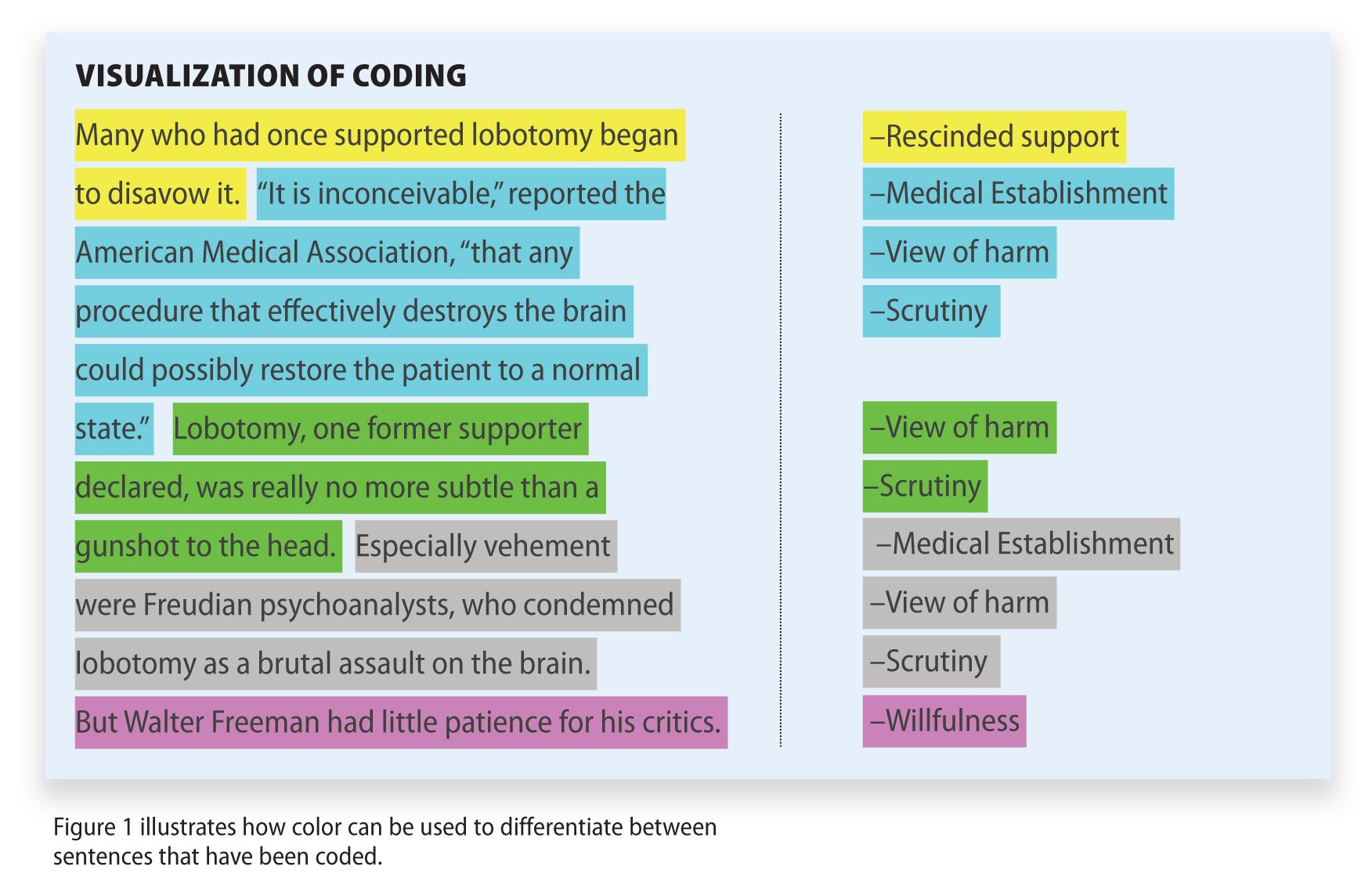
Research Methodology
Qualitative Data Coding

What Is a Focus Group?
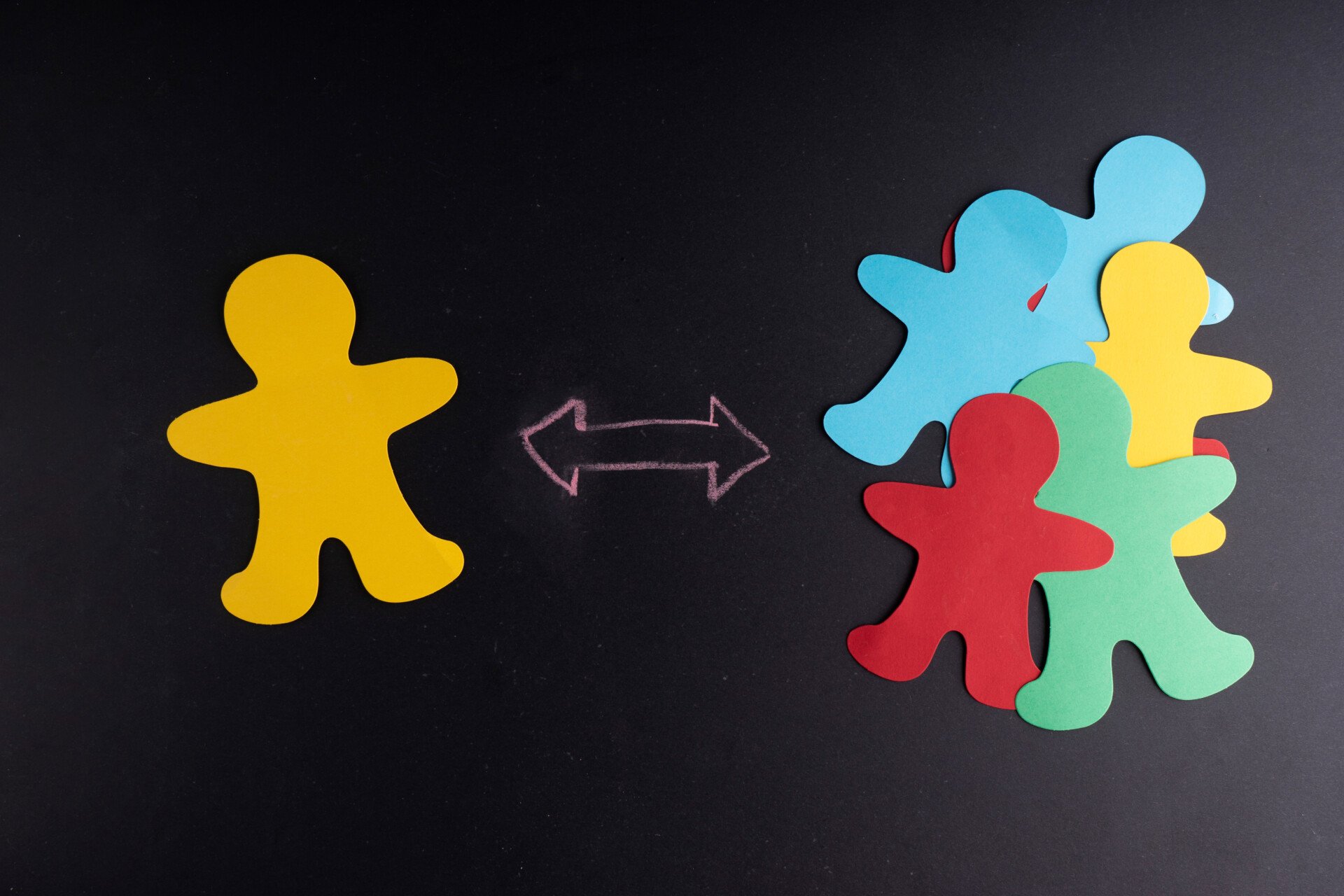
Cross-Cultural Research Methodology In Psychology

What Is Internal Validity In Research?

Research Methodology , Statistics
What Is Face Validity In Research? Importance & How To Measure

Criterion Validity: Definition & Examples
- Bipolar Disorder
- Therapy Center
- When To See a Therapist
- Types of Therapy
- Best Online Therapy
- Best Couples Therapy
- Best Family Therapy
- Managing Stress
- Sleep and Dreaming
- Understanding Emotions
- Self-Improvement
- Healthy Relationships
- Student Resources
- Personality Types
- Guided Meditations
- Verywell Mind Insights
- 2024 Verywell Mind 25
- Mental Health in the Classroom
- Editorial Process
- Meet Our Review Board
- Crisis Support
How to Write a Great Hypothesis
Hypothesis Definition, Format, Examples, and Tips
Kendra Cherry, MS, is a psychosocial rehabilitation specialist, psychology educator, and author of the "Everything Psychology Book."
:max_bytes(150000):strip_icc():format(webp)/IMG_9791-89504ab694d54b66bbd72cb84ffb860e.jpg)
Amy Morin, LCSW, is a psychotherapist and international bestselling author. Her books, including "13 Things Mentally Strong People Don't Do," have been translated into more than 40 languages. Her TEDx talk, "The Secret of Becoming Mentally Strong," is one of the most viewed talks of all time.
:max_bytes(150000):strip_icc():format(webp)/VW-MIND-Amy-2b338105f1ee493f94d7e333e410fa76.jpg)
Verywell / Alex Dos Diaz
- The Scientific Method
Hypothesis Format
Falsifiability of a hypothesis.
- Operationalization
Hypothesis Types
Hypotheses examples.
- Collecting Data
A hypothesis is a tentative statement about the relationship between two or more variables. It is a specific, testable prediction about what you expect to happen in a study. It is a preliminary answer to your question that helps guide the research process.
Consider a study designed to examine the relationship between sleep deprivation and test performance. The hypothesis might be: "This study is designed to assess the hypothesis that sleep-deprived people will perform worse on a test than individuals who are not sleep-deprived."
At a Glance
A hypothesis is crucial to scientific research because it offers a clear direction for what the researchers are looking to find. This allows them to design experiments to test their predictions and add to our scientific knowledge about the world. This article explores how a hypothesis is used in psychology research, how to write a good hypothesis, and the different types of hypotheses you might use.
The Hypothesis in the Scientific Method
In the scientific method , whether it involves research in psychology, biology, or some other area, a hypothesis represents what the researchers think will happen in an experiment. The scientific method involves the following steps:
- Forming a question
- Performing background research
- Creating a hypothesis
- Designing an experiment
- Collecting data
- Analyzing the results
- Drawing conclusions
- Communicating the results
The hypothesis is a prediction, but it involves more than a guess. Most of the time, the hypothesis begins with a question which is then explored through background research. At this point, researchers then begin to develop a testable hypothesis.
Unless you are creating an exploratory study, your hypothesis should always explain what you expect to happen.
In a study exploring the effects of a particular drug, the hypothesis might be that researchers expect the drug to have some type of effect on the symptoms of a specific illness. In psychology, the hypothesis might focus on how a certain aspect of the environment might influence a particular behavior.
Remember, a hypothesis does not have to be correct. While the hypothesis predicts what the researchers expect to see, the goal of the research is to determine whether this guess is right or wrong. When conducting an experiment, researchers might explore numerous factors to determine which ones might contribute to the ultimate outcome.
In many cases, researchers may find that the results of an experiment do not support the original hypothesis. When writing up these results, the researchers might suggest other options that should be explored in future studies.
In many cases, researchers might draw a hypothesis from a specific theory or build on previous research. For example, prior research has shown that stress can impact the immune system. So a researcher might hypothesize: "People with high-stress levels will be more likely to contract a common cold after being exposed to the virus than people who have low-stress levels."
In other instances, researchers might look at commonly held beliefs or folk wisdom. "Birds of a feather flock together" is one example of folk adage that a psychologist might try to investigate. The researcher might pose a specific hypothesis that "People tend to select romantic partners who are similar to them in interests and educational level."
Elements of a Good Hypothesis
So how do you write a good hypothesis? When trying to come up with a hypothesis for your research or experiments, ask yourself the following questions:
- Is your hypothesis based on your research on a topic?
- Can your hypothesis be tested?
- Does your hypothesis include independent and dependent variables?
Before you come up with a specific hypothesis, spend some time doing background research. Once you have completed a literature review, start thinking about potential questions you still have. Pay attention to the discussion section in the journal articles you read . Many authors will suggest questions that still need to be explored.
How to Formulate a Good Hypothesis
To form a hypothesis, you should take these steps:
- Collect as many observations about a topic or problem as you can.
- Evaluate these observations and look for possible causes of the problem.
- Create a list of possible explanations that you might want to explore.
- After you have developed some possible hypotheses, think of ways that you could confirm or disprove each hypothesis through experimentation. This is known as falsifiability.
In the scientific method , falsifiability is an important part of any valid hypothesis. In order to test a claim scientifically, it must be possible that the claim could be proven false.
Students sometimes confuse the idea of falsifiability with the idea that it means that something is false, which is not the case. What falsifiability means is that if something was false, then it is possible to demonstrate that it is false.
One of the hallmarks of pseudoscience is that it makes claims that cannot be refuted or proven false.
The Importance of Operational Definitions
A variable is a factor or element that can be changed and manipulated in ways that are observable and measurable. However, the researcher must also define how the variable will be manipulated and measured in the study.
Operational definitions are specific definitions for all relevant factors in a study. This process helps make vague or ambiguous concepts detailed and measurable.
For example, a researcher might operationally define the variable " test anxiety " as the results of a self-report measure of anxiety experienced during an exam. A "study habits" variable might be defined by the amount of studying that actually occurs as measured by time.
These precise descriptions are important because many things can be measured in various ways. Clearly defining these variables and how they are measured helps ensure that other researchers can replicate your results.
Replicability
One of the basic principles of any type of scientific research is that the results must be replicable.
Replication means repeating an experiment in the same way to produce the same results. By clearly detailing the specifics of how the variables were measured and manipulated, other researchers can better understand the results and repeat the study if needed.
Some variables are more difficult than others to define. For example, how would you operationally define a variable such as aggression ? For obvious ethical reasons, researchers cannot create a situation in which a person behaves aggressively toward others.
To measure this variable, the researcher must devise a measurement that assesses aggressive behavior without harming others. The researcher might utilize a simulated task to measure aggressiveness in this situation.
Hypothesis Checklist
- Does your hypothesis focus on something that you can actually test?
- Does your hypothesis include both an independent and dependent variable?
- Can you manipulate the variables?
- Can your hypothesis be tested without violating ethical standards?
The hypothesis you use will depend on what you are investigating and hoping to find. Some of the main types of hypotheses that you might use include:
- Simple hypothesis : This type of hypothesis suggests there is a relationship between one independent variable and one dependent variable.
- Complex hypothesis : This type suggests a relationship between three or more variables, such as two independent and dependent variables.
- Null hypothesis : This hypothesis suggests no relationship exists between two or more variables.
- Alternative hypothesis : This hypothesis states the opposite of the null hypothesis.
- Statistical hypothesis : This hypothesis uses statistical analysis to evaluate a representative population sample and then generalizes the findings to the larger group.
- Logical hypothesis : This hypothesis assumes a relationship between variables without collecting data or evidence.
A hypothesis often follows a basic format of "If {this happens} then {this will happen}." One way to structure your hypothesis is to describe what will happen to the dependent variable if you change the independent variable .
The basic format might be: "If {these changes are made to a certain independent variable}, then we will observe {a change in a specific dependent variable}."
A few examples of simple hypotheses:
- "Students who eat breakfast will perform better on a math exam than students who do not eat breakfast."
- "Students who experience test anxiety before an English exam will get lower scores than students who do not experience test anxiety."
- "Motorists who talk on the phone while driving will be more likely to make errors on a driving course than those who do not talk on the phone."
- "Children who receive a new reading intervention will have higher reading scores than students who do not receive the intervention."
Examples of a complex hypothesis include:
- "People with high-sugar diets and sedentary activity levels are more likely to develop depression."
- "Younger people who are regularly exposed to green, outdoor areas have better subjective well-being than older adults who have limited exposure to green spaces."
Examples of a null hypothesis include:
- "There is no difference in anxiety levels between people who take St. John's wort supplements and those who do not."
- "There is no difference in scores on a memory recall task between children and adults."
- "There is no difference in aggression levels between children who play first-person shooter games and those who do not."
Examples of an alternative hypothesis:
- "People who take St. John's wort supplements will have less anxiety than those who do not."
- "Adults will perform better on a memory task than children."
- "Children who play first-person shooter games will show higher levels of aggression than children who do not."
Collecting Data on Your Hypothesis
Once a researcher has formed a testable hypothesis, the next step is to select a research design and start collecting data. The research method depends largely on exactly what they are studying. There are two basic types of research methods: descriptive research and experimental research.
Descriptive Research Methods
Descriptive research such as case studies , naturalistic observations , and surveys are often used when conducting an experiment is difficult or impossible. These methods are best used to describe different aspects of a behavior or psychological phenomenon.
Once a researcher has collected data using descriptive methods, a correlational study can examine how the variables are related. This research method might be used to investigate a hypothesis that is difficult to test experimentally.
Experimental Research Methods
Experimental methods are used to demonstrate causal relationships between variables. In an experiment, the researcher systematically manipulates a variable of interest (known as the independent variable) and measures the effect on another variable (known as the dependent variable).
Unlike correlational studies, which can only be used to determine if there is a relationship between two variables, experimental methods can be used to determine the actual nature of the relationship—whether changes in one variable actually cause another to change.
The hypothesis is a critical part of any scientific exploration. It represents what researchers expect to find in a study or experiment. In situations where the hypothesis is unsupported by the research, the research still has value. Such research helps us better understand how different aspects of the natural world relate to one another. It also helps us develop new hypotheses that can then be tested in the future.
Thompson WH, Skau S. On the scope of scientific hypotheses . R Soc Open Sci . 2023;10(8):230607. doi:10.1098/rsos.230607
Taran S, Adhikari NKJ, Fan E. Falsifiability in medicine: what clinicians can learn from Karl Popper [published correction appears in Intensive Care Med. 2021 Jun 17;:]. Intensive Care Med . 2021;47(9):1054-1056. doi:10.1007/s00134-021-06432-z
Eyler AA. Research Methods for Public Health . 1st ed. Springer Publishing Company; 2020. doi:10.1891/9780826182067.0004
Nosek BA, Errington TM. What is replication ? PLoS Biol . 2020;18(3):e3000691. doi:10.1371/journal.pbio.3000691
Aggarwal R, Ranganathan P. Study designs: Part 2 - Descriptive studies . Perspect Clin Res . 2019;10(1):34-36. doi:10.4103/picr.PICR_154_18
Nevid J. Psychology: Concepts and Applications. Wadworth, 2013.
By Kendra Cherry, MSEd Kendra Cherry, MS, is a psychosocial rehabilitation specialist, psychology educator, and author of the "Everything Psychology Book."
The Research Hypothesis: Role and Construction
- First Online: 01 January 2012
Cite this chapter

- Phyllis G. Supino EdD 3
6023 Accesses
A hypothesis is a logical construct, interposed between a problem and its solution, which represents a proposed answer to a research question. It gives direction to the investigator’s thinking about the problem and, therefore, facilitates a solution. There are three primary modes of inference by which hypotheses are developed: deduction (reasoning from a general propositions to specific instances), induction (reasoning from specific instances to a general proposition), and abduction (formulation/acceptance on probation of a hypothesis to explain a surprising observation).
A research hypothesis should reflect an inference about variables; be stated as a grammatically complete, declarative sentence; be expressed simply and unambiguously; provide an adequate answer to the research problem; and be testable. Hypotheses can be classified as conceptual versus operational, single versus bi- or multivariable, causal or not causal, mechanistic versus nonmechanistic, and null or alternative. Hypotheses most commonly entail statements about “variables” which, in turn, can be classified according to their level of measurement (scaling characteristics) or according to their role in the hypothesis (independent, dependent, moderator, control, or intervening).
A hypothesis is rendered operational when its broadly (conceptually) stated variables are replaced by operational definitions of those variables. Hypotheses stated in this manner are called operational hypotheses, specific hypotheses, or predictions and facilitate testing.
Wrong hypotheses, rightly worked from, have produced more results than unguided observation
—Augustus De Morgan, 1872[ 1 ]—
This is a preview of subscription content, log in via an institution to check access.
Access this chapter
- Available as EPUB and PDF
- Read on any device
- Instant download
- Own it forever
- Compact, lightweight edition
- Dispatched in 3 to 5 business days
- Free shipping worldwide - see info
- Durable hardcover edition
Tax calculation will be finalised at checkout
Purchases are for personal use only
Institutional subscriptions
Similar content being viewed by others

The Nature and Logic of Science: Testing Hypotheses

Abductive Research Methods in Psychological Science

Abductive Research Methods in Psychological Science
De Morgan A, De Morgan S. A budget of paradoxes. London: Longmans Green; 1872.
Google Scholar
Leedy Paul D. Practical research. Planning and design. 2nd ed. New York: Macmillan; 1960.
Bernard C. Introduction to the study of experimental medicine. New York: Dover; 1957.
Erren TC. The quest for questions—on the logical force of science. Med Hypotheses. 2004;62:635–40.
Article PubMed Google Scholar
Peirce CS. Collected papers of Charles Sanders Peirce, vol. 7. In: Hartshorne C, Weiss P, editors. Boston: The Belknap Press of Harvard University Press; 1966.
Aristotle. The complete works of Aristotle: the revised Oxford Translation. In: Barnes J, editor. vol. 2. Princeton/New Jersey: Princeton University Press; 1984.
Polit D, Beck CT. Conceptualizing a study to generate evidence for nursing. In: Polit D, Beck CT, editors. Nursing research: generating and assessing evidence for nursing practice. 8th ed. Philadelphia: Wolters Kluwer/Lippincott Williams and Wilkins; 2008. Chapter 4.
Jenicek M, Hitchcock DL. Evidence-based practice. Logic and critical thinking in medicine. Chicago: AMA Press; 2005.
Bacon F. The novum organon or a true guide to the interpretation of nature. A new translation by the Rev G.W. Kitchin. Oxford: The University Press; 1855.
Popper KR. Objective knowledge: an evolutionary approach (revised edition). New York: Oxford University Press; 1979.
Morgan AJ, Parker S. Translational mini-review series on vaccines: the Edward Jenner Museum and the history of vaccination. Clin Exp Immunol. 2007;147:389–94.
Article PubMed CAS Google Scholar
Pead PJ. Benjamin Jesty: new light in the dawn of vaccination. Lancet. 2003;362:2104–9.
Lee JA. The scientific endeavor: a primer on scientific principles and practice. San Francisco: Addison-Wesley Longman; 2000.
Allchin D. Lawson’s shoehorn, or should the philosophy of science be rated, ‘X’? Science and Education. 2003;12:315–29.
Article Google Scholar
Lawson AE. What is the role of induction and deduction in reasoning and scientific inquiry? J Res Sci Teach. 2005;42:716–40.
Peirce CS. Collected papers of Charles Sanders Peirce, vol. 2. In: Hartshorne C, Weiss P, editors. Boston: The Belknap Press of Harvard University Press; 1965.
Bonfantini MA, Proni G. To guess or not to guess? In: Eco U, Sebeok T, editors. The sign of three: Dupin, Holmes, Peirce. Bloomington: Indiana University Press; 1983. Chapter 5.
Peirce CS. Collected papers of Charles Sanders Peirce, vol. 5. In: Hartshorne C, Weiss P, editors. Boston: The Belknap Press of Harvard University Press; 1965.
Flach PA, Kakas AC. Abductive and inductive reasoning: background issues. In: Flach PA, Kakas AC, editors. Abduction and induction. Essays on their relation and integration. The Netherlands: Klewer; 2000. Chapter 1.
Murray JF. Voltaire, Walpole and Pasteur: variations on the theme of discovery. Am J Respir Crit Care Med. 2005;172:423–6.
Danemark B, Ekstrom M, Jakobsen L, Karlsson JC. Methodological implications, generalization, scientific inference, models (Part II) In: explaining society. Critical realism in the social sciences. New York: Routledge; 2002.
Pasteur L. Inaugural lecture as professor and dean of the faculty of sciences. In: Peterson H, editor. A treasury of the world’s greatest speeches. Douai, France: University of Lille 7 Dec 1954.
Swineburne R. Simplicity as evidence for truth. Milwaukee: Marquette University Press; 1997.
Sakar S, editor. Logical empiricism at its peak: Schlick, Carnap and Neurath. New York: Garland; 1996.
Popper K. The logic of scientific discovery. New York: Basic Books; 1959. 1934, trans. 1959.
Caws P. The philosophy of science. Princeton: D. Van Nostrand Company; 1965.
Popper K. Conjectures and refutations. The growth of scientific knowledge. 4th ed. London: Routledge and Keegan Paul; 1972.
Feyerabend PK. Against method, outline of an anarchistic theory of knowledge. London, UK: Verso; 1978.
Smith PG. Popper: conjectures and refutations (Chapter IV). In: Theory and reality: an introduction to the philosophy of science. Chicago: University of Chicago Press; 2003.
Blystone RV, Blodgett K. WWW: the scientific method. CBE Life Sci Educ. 2006;5:7–11.
Kleinbaum DG, Kupper LL, Morgenstern H. Epidemiological research. Principles and quantitative methods. New York: Van Nostrand Reinhold; 1982.
Fortune AE, Reid WJ. Research in social work. 3rd ed. New York: Columbia University Press; 1999.
Kerlinger FN. Foundations of behavioral research. 1st ed. New York: Hold, Reinhart and Winston; 1970.
Hoskins CN, Mariano C. Research in nursing and health. Understanding and using quantitative and qualitative methods. New York: Springer; 2004.
Tuckman BW. Conducting educational research. New York: Harcourt, Brace, Jovanovich; 1972.
Wang C, Chiari PC, Weihrauch D, Krolikowski JG, Warltier DC, Kersten JR, Pratt Jr PF, Pagel PS. Gender-specificity of delayed preconditioning by isoflurane in rabbits: potential role of endothelial nitric oxide synthase. Anesth Analg. 2006;103:274–80.
Beyer ME, Slesak G, Nerz S, Kazmaier S, Hoffmeister HM. Effects of endothelin-1 and IRL 1620 on myocardial contractility and myocardial energy metabolism. J Cardiovasc Pharmacol. 1995;26(Suppl 3):S150–2.
PubMed CAS Google Scholar
Stone J, Sharpe M. Amnesia for childhood in patients with unexplained neurological symptoms. J Neurol Neurosurg Psychiatry. 2002;72:416–7.
Naughton BJ, Moran M, Ghaly Y, Michalakes C. Computer tomography scanning and delirium in elder patients. Acad Emerg Med. 1997;4:1107–10.
Easterbrook PJ, Berlin JA, Gopalan R, Matthews DR. Publication bias in clinical research. Lancet. 1991;337:867–72.
Stern JM, Simes RJ. Publication bias: evidence of delayed publication in a cohort study of clinical research projects. BMJ. 1997;315:640–5.
Stevens SS. On the theory of scales and measurement. Science. 1946;103:677–80.
Knapp TR. Treating ordinal scales as interval scales: an attempt to resolve the controversy. Nurs Res. 1990;39:121–3.
The Cochrane Collaboration. Open Learning Material. www.cochrane-net.org/openlearning/html/mod14-3.htm . Accessed 12 Oct 2009.
MacCorquodale K, Meehl PE. On a distinction between hypothetical constructs and intervening variables. Psychol Rev. 1948;55:95–107.
Baron RM, Kenny DA. The moderator-mediator variable distinction in social psychological research: conceptual, strategic and statistical considerations. J Pers Soc Psychol. 1986;51:1173–82.
Williamson GM, Schultz R. Activity restriction mediates the association between pain and depressed affect: a study of younger and older adult cancer patients. Psychol Aging. 1995;10:369–78.
Song M, Lee EO. Development of a functional capacity model for the elderly. Res Nurs Health. 1998;21:189–98.
MacKinnon DP. Introduction to statistical mediation analysis. New York: Routledge; 2008.
Download references
Author information
Authors and affiliations.
Department of Medicine, College of Medicine, SUNY Downstate Medical Center, 450 Clarkson Avenue, 1199, Brooklyn, NY, 11203, USA
Phyllis G. Supino EdD
You can also search for this author in PubMed Google Scholar
Corresponding author
Correspondence to Phyllis G. Supino EdD .
Editor information
Editors and affiliations.
, Cardiovascular Medicine, SUNY Downstate Medical Center, Clarkson Avenue, box 1199 450, Brooklyn, 11203, USA
Phyllis G. Supino
, Cardiovascualr Medicine, SUNY Downstate Medical Center, Clarkson Avenue 450, Brooklyn, 11203, USA
Jeffrey S. Borer
Rights and permissions
Reprints and permissions
Copyright information
© 2012 Springer Science+Business Media, LLC
About this chapter
Supino, P.G. (2012). The Research Hypothesis: Role and Construction. In: Supino, P., Borer, J. (eds) Principles of Research Methodology. Springer, New York, NY. https://doi.org/10.1007/978-1-4614-3360-6_3
Download citation
DOI : https://doi.org/10.1007/978-1-4614-3360-6_3
Published : 18 April 2012
Publisher Name : Springer, New York, NY
Print ISBN : 978-1-4614-3359-0
Online ISBN : 978-1-4614-3360-6
eBook Packages : Medicine Medicine (R0)
Share this chapter
Anyone you share the following link with will be able to read this content:
Sorry, a shareable link is not currently available for this article.
Provided by the Springer Nature SharedIt content-sharing initiative
- Publish with us
Policies and ethics
- Find a journal
- Track your research

Difference Between a Hypothesis and an Assumption
The difference between a hypothesis and an assumption is that the first is typically explicit and the second implicit. A hypothesis is what you are testing explicitly in an experiment. An assumption is tested implicitly. By making your assumptions and hypotheses explicit, you increase the clarity of your approach and the chance for learning.
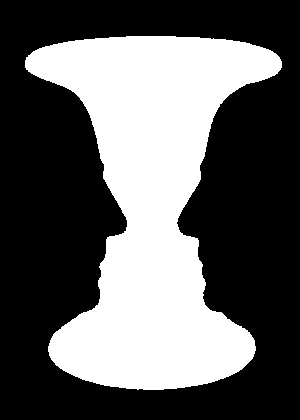
A: When you are looking for early customers, the value hypothesis is critical. You may reach them using non-scalable methods that don’t address your first real growth hypothesis.
Here is my take on the distinction between a hypothesis and an assumption; your mileage may vary:
A hypothesis is what you are testing explicitly in an experiment. An assumption is tested implicitly. By making your assumptions and hypotheses explicit, you increase the clarity of your approach and the chance for learning.
The two things that can trip you up most often are an unconscious assumption that masks a problem with your hypothesis or an unconscious bias in who you are testing the value hypothesis on. In particular, you may have defined your target customer with specific selection criteria, but your actual choices for whom to speak to (or who will talk with you) are not sampling from the full spectrum of possibilities.
“Creative leaps are discontinuities , qualitative changes. They involve three steps: identification of self-imposed constraints (assumptions); removing them; exploring the consequences of their removal. That is why there is always an element of surprise when we are exposed to creative work–it always embodies the denial of something we have taken for granted, usually unconsciously.” Russell Ackoff in “The Democratic Corporation” (page 99)

Update: Test Your Value Hypothesis First Even If Your Methods Don’t Scale
Update Wed-Jan-29-2014 : Tim Allan left a great comment that elaborated on the need to focus on value first even if your methods don’t scale:
There was a bit of a light-bulb moment for me what I read the line: “When you are looking for early customers the value hypothesis is critical. You may reach them using non-scalable methods that don’t address your first real growth hypothesis.”
I feel this is so often forgotten, especially in the situation of legacy systems and trying to execute lean product design within larger organizations. One example that I have been involved in, and which I regret not pushing back harder, was a requirement to use some legacy data services.
This meant that we couldn’t initially execute a hand-cranked, non-scalable solution to data storage and retrieval that our product required, which would have been better as it would have enabled us to get to customer quicker and get real learnings about how they are using our product.
At the time it didn’t seem like a big deal, but in the end it was, and continues to be an issue and an impediment in getting to the customer quicker. Likewise, any real growth hypothesis, results will most likely be skewed by the performance of systems that are not in your control.
I want to thank Tim for offering a practical story that elaborates on the principle of “confirm the value before worrying about scaling.” When I was at Cisco, the focus was always on “will it scale,” as in we shouldn’t do something because “it won’t scale.” This sometimes led to us releasing a product that could have been more valuable if we had proceeded a little more thoughtfully and incorporated early feedback before rushing to launch. Techniques that work “in the small” to gather insight have their place even inside large firms.
Related Blog Posts
- Hypothesis Not Hype
- Early Markets Offer Fluid Opportunities
- Spend Some Time On How To Disprove Your Hypotheses
- Janet Iwasa: Animate Your Hypothesis to Explore Its Viability and Implications
- Without A Revenue Hypothesis Your Business Model Is a List of User Activities
- Strategy is a Hypothesis
- Tristan Kromer on Testing Customer and Value Hypotheses
Image Credit: Public Domain image of a “Rubin Vase”
7 thoughts on “Difference Between a Hypothesis and an Assumption”
How refreshing to find your insights! Behind every strategy or project design is a set of hypotheses, usually not made explicit. We can use if-then causal thinking to link objectives together in relationship to each other with if-then logic “if we build it, they will come”.
My life work has been using the Logical Framework Approach, a systems thinking and project design methodology based on hypotheses and assumptions. Featured in book “Strategic Project Management Made Simple”, and video http://youtu.be/IX09_y4O1aI
Thanks Sean for bringing strategic management principles to your readers — what you shared is fundamental to success but seldom explored.
There was a bit of a light-bulb moment for me what I read the line:
“When you are looking for early customers the value hypothesis is critical. You may reach them using non-scalable methods that don’t address your first real growth hypothesis.”
I feel this is so often forgotten, especially in the situation of legacy systems and trying to execute lean product design within larger organisations. One example that I have been involved in, and which I regret not pushing back harder, was a requirement to use some legacy data services.
This meant that we couldn’t initially execute a hand-cranked, non-scalable solution to data storage and retrieval that our product required, which would have been better as it would have enabled us to get to customer quicker and get real learnings about how they are using our product.
At the time it didn’t seem like a big deal, but in the end it was, and continues to be an issue and an impediment in getting to the customer quicker. Likewise, any real growth hypothesis, results will most likely be skewed by the performance of systems that are not in your control.
Pingback: SKMurphy, Inc. » Quotes for Entrepreneurs–January 2014
Pingback: SKMurphy, Inc. Quotes for Entrepreneurs-November 2014 - SKMurphy, Inc.
Pingback: SKMurphy, Inc. Customer Development After The First Prototype
Pingback: SKMurphy, Inc. Strategy is a Hypothesis - SKMurphy, Inc.
Pingback: SKMurphy, Inc. Most Popular SKMurphy Blog Posts Oct-2006 Through Sep-2017 - SKMurphy, Inc.
Leave a Comment
Your email address will not be published. Required fields are marked *
Save my name, email, and website in this browser for the next time I comment.

Stating the Obvious: Writing Assumptions, Limitations, and Delimitations

During the process of writing your thesis or dissertation, you might suddenly realize that your research has inherent flaws. Don’t worry! Virtually all projects contain restrictions to your research. However, being able to recognize and accurately describe these problems is the difference between a true researcher and a grade-school kid with a science-fair project. Concerns with truthful responding, access to participants, and survey instruments are just a few of examples of restrictions on your research. In the following sections, the differences among delimitations, limitations, and assumptions of a dissertation will be clarified.
Delimitations
Delimitations are the definitions you set as the boundaries of your own thesis or dissertation, so delimitations are in your control. Delimitations are set so that your goals do not become impossibly large to complete. Examples of delimitations include objectives, research questions, variables, theoretical objectives that you have adopted, and populations chosen as targets to study. When you are stating your delimitations, clearly inform readers why you chose this course of study. The answer might simply be that you were curious about the topic and/or wanted to improve standards of a professional field by revealing certain findings. In any case, you should clearly list the other options available and the reasons why you did not choose these options immediately after you list your delimitations. You might have avoided these options for reasons of practicality, interest, or relativity to the study at hand. For example, you might have only studied Hispanic mothers because they have the highest rate of obese babies. Delimitations are often strongly related to your theory and research questions. If you were researching whether there are different parenting styles between unmarried Asian, Caucasian, African American, and Hispanic women, then a delimitation of your study would be the inclusion of only participants with those demographics and the exclusion of participants from other demographics such as men, married women, and all other ethnicities of single women (inclusion and exclusion criteria). A further delimitation might be that you only included closed-ended Likert scale responses in the survey, rather than including additional open-ended responses, which might make some people more willing to take and complete your survey. Remember that delimitations are not good or bad. They are simply a detailed description of the scope of interest for your study as it relates to the research design. Don’t forget to describe the philosophical framework you used throughout your study, which also delimits your study.
Limitations
Limitations of a dissertation are potential weaknesses in your study that are mostly out of your control, given limited funding, choice of research design, statistical model constraints, or other factors. In addition, a limitation is a restriction on your study that cannot be reasonably dismissed and can affect your design and results. Do not worry about limitations because limitations affect virtually all research projects, as well as most things in life. Even when you are going to your favorite restaurant, you are limited by the menu choices. If you went to a restaurant that had a menu that you were craving, you might not receive the service, price, or location that makes you enjoy your favorite restaurant. If you studied participants’ responses to a survey, you might be limited in your abilities to gain the exact type or geographic scope of participants you wanted. The people whom you managed to get to take your survey may not truly be a random sample, which is also a limitation. If you used a common test for data findings, your results are limited by the reliability of the test. If your study was limited to a certain amount of time, your results are affected by the operations of society during that time period (e.g., economy, social trends). It is important for you to remember that limitations of a dissertation are often not something that can be solved by the researcher. Also, remember that whatever limits you also limits other researchers, whether they are the largest medical research companies or consumer habits corporations. Certain kinds of limitations are often associated with the analytical approach you take in your research, too. For example, some qualitative methods like heuristics or phenomenology do not lend themselves well to replicability. Also, most of the commonly used quantitative statistical models can only determine correlation, but not causation.
Assumptions
Assumptions are things that are accepted as true, or at least plausible, by researchers and peers who will read your dissertation or thesis. In other words, any scholar reading your paper will assume that certain aspects of your study is true given your population, statistical test, research design, or other delimitations. For example, if you tell your friend that your favorite restaurant is an Italian place, your friend will assume that you don’t go there for the sushi. It’s assumed that you go there to eat Italian food. Because most assumptions are not discussed in-text, assumptions that are discussed in-text are discussed in the context of the limitations of your study, which is typically in the discussion section. This is important, because both assumptions and limitations affect the inferences you can draw from your study. One of the more common assumptions made in survey research is the assumption of honesty and truthful responses. However, for certain sensitive questions this assumption may be more difficult to accept, in which case it would be described as a limitation of the study. For example, asking people to report their criminal behavior in a survey may not be as reliable as asking people to report their eating habits. It is important to remember that your limitations and assumptions should not contradict one another. For instance, if you state that generalizability is a limitation of your study given that your sample was limited to one city in the United States, then you should not claim generalizability to the United States population as an assumption of your study. Statistical models in quantitative research designs are accompanied with assumptions as well, some more strict than others. These assumptions generally refer to the characteristics of the data, such as distributions, correlational trends, and variable type, just to name a few. Violating these assumptions can lead to drastically invalid results, though this often depends on sample size and other considerations.
Click here to cancel reply.
You must be logged in to post a comment.
Copyright © 2024 PhDStudent.com. All rights reserved. Designed by Divergent Web Solutions, LLC .

Hypothesis vs. Assumption — What's the Difference?
Difference Between Hypothesis and Assumption
Table of contents, key differences, comparison chart, testability, outcome if incorrect, evolution based on evidence, compare with definitions, common curiosities, how does an incorrect assumption impact research, is a hypothesis always correct, how do you validate a hypothesis, what's the primary purpose of a hypothesis in research, can assumptions be tested, do all scientific studies begin with a hypothesis, are assumptions always untested, is a hypothesis more valuable than an assumption in research, are assumptions universally accepted, do assumptions have a place in scientific research, can a hypothesis turn into an assumption over time, how does one form a hypothesis, can a hypothesis be broad, what happens if you start with the wrong assumption, why is it crucial to identify assumptions in research, share your discovery.

Author Spotlight
Popular Comparisons

Trending Comparisons

New Comparisons

Trending Terms

- Social Science
- Social Psychology
Assumptions, Limitations, Delimitations, and Scope of the Study By
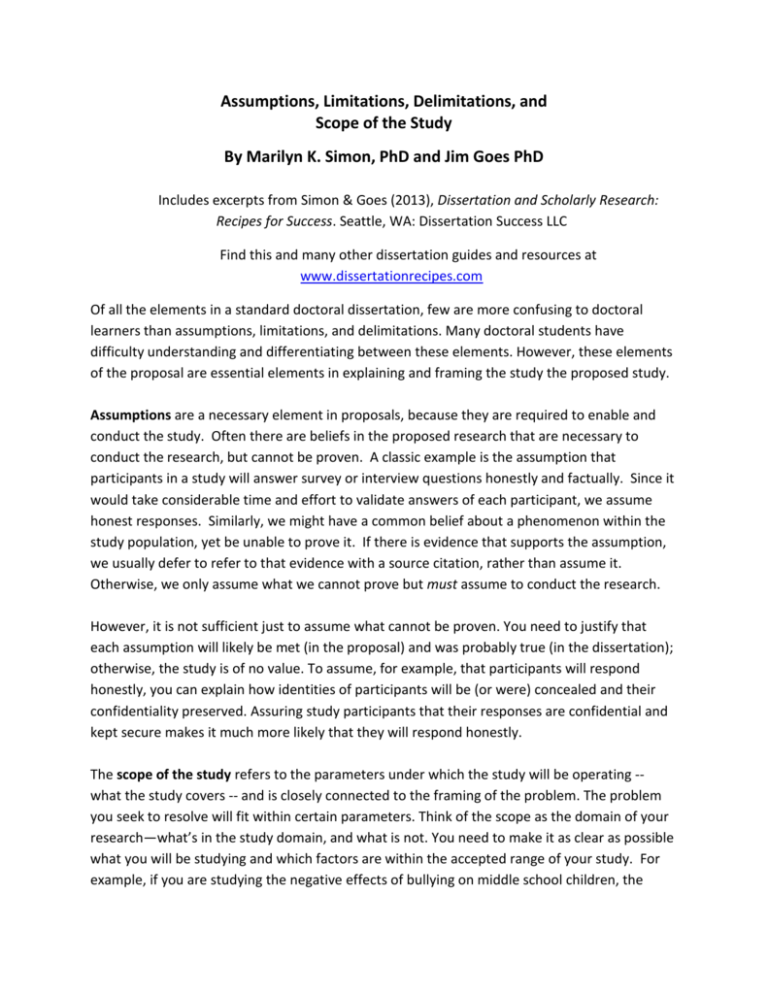
Related documents
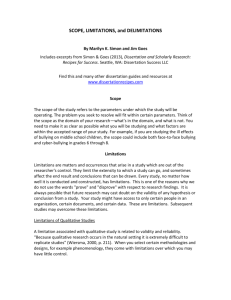
Add this document to collection(s)
You can add this document to your study collection(s)
Add this document to saved
You can add this document to your saved list
Suggest us how to improve StudyLib
(For complaints, use another form )
Input it if you want to receive answer
This is the Difference Between a Hypothesis and a Theory
What to Know A hypothesis is an assumption made before any research has been done. It is formed so that it can be tested to see if it might be true. A theory is a principle formed to explain the things already shown in data. Because of the rigors of experiment and control, it is much more likely that a theory will be true than a hypothesis.
As anyone who has worked in a laboratory or out in the field can tell you, science is about process: that of observing, making inferences about those observations, and then performing tests to see if the truth value of those inferences holds up. The scientific method is designed to be a rigorous procedure for acquiring knowledge about the world around us.

In scientific reasoning, a hypothesis is constructed before any applicable research has been done. A theory, on the other hand, is supported by evidence: it's a principle formed as an attempt to explain things that have already been substantiated by data.
Toward that end, science employs a particular vocabulary for describing how ideas are proposed, tested, and supported or disproven. And that's where we see the difference between a hypothesis and a theory .
A hypothesis is an assumption, something proposed for the sake of argument so that it can be tested to see if it might be true.
In the scientific method, the hypothesis is constructed before any applicable research has been done, apart from a basic background review. You ask a question, read up on what has been studied before, and then form a hypothesis.
What is a Hypothesis?
A hypothesis is usually tentative, an assumption or suggestion made strictly for the objective of being tested.
When a character which has been lost in a breed, reappears after a great number of generations, the most probable hypothesis is, not that the offspring suddenly takes after an ancestor some hundred generations distant, but that in each successive generation there has been a tendency to reproduce the character in question, which at last, under unknown favourable conditions, gains an ascendancy. Charles Darwin, On the Origin of Species , 1859 According to one widely reported hypothesis , cell-phone transmissions were disrupting the bees' navigational abilities. (Few experts took the cell-phone conjecture seriously; as one scientist said to me, "If that were the case, Dave Hackenberg's hives would have been dead a long time ago.") Elizabeth Kolbert, The New Yorker , 6 Aug. 2007
What is a Theory?
A theory , in contrast, is a principle that has been formed as an attempt to explain things that have already been substantiated by data. It is used in the names of a number of principles accepted in the scientific community, such as the Big Bang Theory . Because of the rigors of experimentation and control, its likelihood as truth is much higher than that of a hypothesis.
It is evident, on our theory , that coasts merely fringed by reefs cannot have subsided to any perceptible amount; and therefore they must, since the growth of their corals, either have remained stationary or have been upheaved. Now, it is remarkable how generally it can be shown, by the presence of upraised organic remains, that the fringed islands have been elevated: and so far, this is indirect evidence in favour of our theory . Charles Darwin, The Voyage of the Beagle , 1839 An example of a fundamental principle in physics, first proposed by Galileo in 1632 and extended by Einstein in 1905, is the following: All observers traveling at constant velocity relative to one another, should witness identical laws of nature. From this principle, Einstein derived his theory of special relativity. Alan Lightman, Harper's , December 2011
Non-Scientific Use
In non-scientific use, however, hypothesis and theory are often used interchangeably to mean simply an idea, speculation, or hunch (though theory is more common in this regard):
The theory of the teacher with all these immigrant kids was that if you spoke English loudly enough they would eventually understand. E. L. Doctorow, Loon Lake , 1979 Chicago is famous for asking questions for which there can be no boilerplate answers. Example: given the probability that the federal tax code, nondairy creamer, Dennis Rodman and the art of mime all came from outer space, name something else that has extraterrestrial origins and defend your hypothesis . John McCormick, Newsweek , 5 Apr. 1999 In his mind's eye, Miller saw his case suddenly taking form: Richard Bailey had Helen Brach killed because she was threatening to sue him over the horses she had purchased. It was, he realized, only a theory , but it was one he felt certain he could, in time, prove. Full of urgency, a man with a mission now that he had a hypothesis to guide him, he issued new orders to his troops: Find out everything you can about Richard Bailey and his crowd. Howard Blum, Vanity Fair , January 1995
And sometimes one term is used as a genus, or a means for defining the other:
Laplace's popular version of his astronomy, the Système du monde , was famous for introducing what came to be known as the nebular hypothesis , the theory that the solar system was formed by the condensation, through gradual cooling, of the gaseous atmosphere (the nebulae) surrounding the sun. Louis Menand, The Metaphysical Club , 2001 Researchers use this information to support the gateway drug theory — the hypothesis that using one intoxicating substance leads to future use of another. Jordy Byrd, The Pacific Northwest Inlander , 6 May 2015 Fox, the business and economics columnist for Time magazine, tells the story of the professors who enabled those abuses under the banner of the financial theory known as the efficient market hypothesis . Paul Krugman, The New York Times Book Review , 9 Aug. 2009
Incorrect Interpretations of "Theory"
Since this casual use does away with the distinctions upheld by the scientific community, hypothesis and theory are prone to being wrongly interpreted even when they are encountered in scientific contexts—or at least, contexts that allude to scientific study without making the critical distinction that scientists employ when weighing hypotheses and theories.
The most common occurrence is when theory is interpreted—and sometimes even gleefully seized upon—to mean something having less truth value than other scientific principles. (The word law applies to principles so firmly established that they are almost never questioned, such as the law of gravity.)
This mistake is one of projection: since we use theory in general use to mean something lightly speculated, then it's implied that scientists must be talking about the same level of uncertainty when they use theory to refer to their well-tested and reasoned principles.
The distinction has come to the forefront particularly on occasions when the content of science curricula in schools has been challenged—notably, when a school board in Georgia put stickers on textbooks stating that evolution was "a theory, not a fact, regarding the origin of living things." As Kenneth R. Miller, a cell biologist at Brown University, has said , a theory "doesn’t mean a hunch or a guess. A theory is a system of explanations that ties together a whole bunch of facts. It not only explains those facts, but predicts what you ought to find from other observations and experiments.”
While theories are never completely infallible, they form the basis of scientific reasoning because, as Miller said "to the best of our ability, we’ve tested them, and they’ve held up."
More Differences Explained
- Epidemic vs. Pandemic
- Diagnosis vs. Prognosis
- Treatment vs. Cure
Word of the Day
See Definitions and Examples »
Get Word of the Day daily email!
Games & Quizzes

Commonly Confused
'canceled' or 'cancelled', is it 'home in' or 'hone in', the difference between 'race' and 'ethnicity', homophones, homographs, and homonyms, on 'biweekly' and 'bimonthly', grammar & usage, more words you always have to look up, 'fewer' and 'less', 7 pairs of commonly confused words, more commonly misspelled words, commonly misspelled words, great big list of beautiful and useless words, vol. 4, 9 other words for beautiful, why jaywalking is called jaywalking, pilfer: how to play and win, the words of the week - may 24.

- May 30, 2024 | Orcas’ One-Breath Mystery – Marine Biologists Confirm Longstanding Hypothesis
- May 29, 2024 | How Scientists Engineered the Unthinkable With New Hybrid Materials
- May 29, 2024 | Late-Night Danger: Scientists Discover Link Between Common Sleep Condition and Epilepsy
- May 29, 2024 | NASA’s Starling Swarm Successfully Pioneers Autonomous Space Travel
- May 29, 2024 | A New Way To Treat Obesity? UV Light Found To Prevent Body Weight Gain
Orcas’ One-Breath Mystery – Marine Biologists Confirm Longstanding Hypothesis
By University of British Columbia May 30, 2024

A recent study using drone footage and biological tags on 11 killer whales off the coast of British Columbia reveals that orcas take only one breath between dives and primarily engage in short, shallow dives. The research also provides insights into orca breathing patterns and energy needs, indicating how much fish they require daily for conservation efforts.
Research shows that killer whales take just one breath between short, shallow dives, with findings aiding in the conservation by estimating their daily fish requirements.
A recent study has verified a longstanding assumption: orcas only breathe once between dives.
The researchers used drone footage and biological data from tags suction-cupped to 11 northern and southern resident killer whales off the coast of B.C. to gather information on the animals’ habits.
Whaley fun facts
Published in PLOS ONE , the study found that residents spend most of their time making shallow dives, with the majority of dives less than one minute. The longest dive recorded was 8.5 minutes, for an adult male. “Killer whales are like sprinters who don’t have the marathon endurance of blue and humpback whales to make deep and prolonged dives,” said co-author Dr. Andrew Trites, professor in the UBC Institute for the Oceans and Fisheries (IOF) .
For how many fish could an orca wish?
Confirming orcas take only one breath between dives allowed the researchers to calculate how many liters of oxygen adults and juveniles consume per minute. This provides another piece of the puzzle in estimating orca energy expenditure, and eventually, how many fish the animals need to eat per day. “Researchers can then work out if the orcas are getting enough food, including the endangered southern residents, a key factor in their conservation,” said first author Tess McRae, IOF masters student.
Breathe like an orca
Killer whales in the study took 1.2 to 1.3 breaths per minute while resting and 1.5 to 1.8 while traveling or hunting. Comparatively, humans tend to take about 15 breaths per minute when resting and from 40 to 60 while exercising. “It’s the equivalent of holding your breath and running to the grocery store, shopping, and coming back before breathing again,” said co-author Dr. Beth Volpov, IOF postdoctoral fellow.
Reference: “Killer whale respiration rates” by Tess M. McRae, Beth L. Volpov, Evan Sidrow, Sarah M. E. Fortune, Marie Auger-Méthé, Nancy Heckman and Andrew W. Trites, 15 May 2024, PLOS ONE . DOI: 10.1371/journal.pone.0302758
More on SciTechDaily
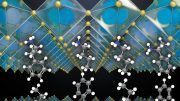
How Scientists Engineered the Unthinkable With New Hybrid Materials
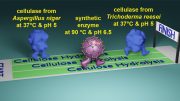
Like Super Enzymes – Chemists Develop Synthetic Catalysts To Break Down Biomass

New Research: Higher Education Linked to Increased Risk of Depression and Anxiety

50 Global Experts Warn: We Must Stop Technology-Driven AI

Dark Matter Debunked in Revolutionary Cosmic Study

Signs of Alzheimer’s Disease Detectable Before Significant Symptoms Are Obvious
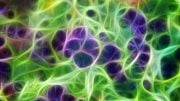
Darwin’s “Mystery of Mysteries” and the Microbiome
Dramatic melting of antarctica under record heat caught by shocking nasa satellite images, be the first to comment on "orcas’ one-breath mystery – marine biologists confirm longstanding hypothesis", leave a comment cancel reply.
Email address is optional. If provided, your email will not be published or shared.
Save my name, email, and website in this browser for the next time I comment.
An official website of the United States government
The .gov means it’s official. Federal government websites often end in .gov or .mil. Before sharing sensitive information, make sure you’re on a federal government site.
The site is secure. The https:// ensures that you are connecting to the official website and that any information you provide is encrypted and transmitted securely.
- Publications
- Account settings
Preview improvements coming to the PMC website in October 2024. Learn More or Try it out now .
- Advanced Search
- Journal List
- v.53(4); 2010 Aug

Research questions, hypotheses and objectives
Patricia farrugia.
* Michael G. DeGroote School of Medicine, the
Bradley A. Petrisor
† Division of Orthopaedic Surgery and the
Forough Farrokhyar
‡ Departments of Surgery and
§ Clinical Epidemiology and Biostatistics, McMaster University, Hamilton, Ont
Mohit Bhandari
There is an increasing familiarity with the principles of evidence-based medicine in the surgical community. As surgeons become more aware of the hierarchy of evidence, grades of recommendations and the principles of critical appraisal, they develop an increasing familiarity with research design. Surgeons and clinicians are looking more and more to the literature and clinical trials to guide their practice; as such, it is becoming a responsibility of the clinical research community to attempt to answer questions that are not only well thought out but also clinically relevant. The development of the research question, including a supportive hypothesis and objectives, is a necessary key step in producing clinically relevant results to be used in evidence-based practice. A well-defined and specific research question is more likely to help guide us in making decisions about study design and population and subsequently what data will be collected and analyzed. 1
Objectives of this article
In this article, we discuss important considerations in the development of a research question and hypothesis and in defining objectives for research. By the end of this article, the reader will be able to appreciate the significance of constructing a good research question and developing hypotheses and research objectives for the successful design of a research study. The following article is divided into 3 sections: research question, research hypothesis and research objectives.
Research question
Interest in a particular topic usually begins the research process, but it is the familiarity with the subject that helps define an appropriate research question for a study. 1 Questions then arise out of a perceived knowledge deficit within a subject area or field of study. 2 Indeed, Haynes suggests that it is important to know “where the boundary between current knowledge and ignorance lies.” 1 The challenge in developing an appropriate research question is in determining which clinical uncertainties could or should be studied and also rationalizing the need for their investigation.
Increasing one’s knowledge about the subject of interest can be accomplished in many ways. Appropriate methods include systematically searching the literature, in-depth interviews and focus groups with patients (and proxies) and interviews with experts in the field. In addition, awareness of current trends and technological advances can assist with the development of research questions. 2 It is imperative to understand what has been studied about a topic to date in order to further the knowledge that has been previously gathered on a topic. Indeed, some granting institutions (e.g., Canadian Institute for Health Research) encourage applicants to conduct a systematic review of the available evidence if a recent review does not already exist and preferably a pilot or feasibility study before applying for a grant for a full trial.
In-depth knowledge about a subject may generate a number of questions. It then becomes necessary to ask whether these questions can be answered through one study or if more than one study needed. 1 Additional research questions can be developed, but several basic principles should be taken into consideration. 1 All questions, primary and secondary, should be developed at the beginning and planning stages of a study. Any additional questions should never compromise the primary question because it is the primary research question that forms the basis of the hypothesis and study objectives. It must be kept in mind that within the scope of one study, the presence of a number of research questions will affect and potentially increase the complexity of both the study design and subsequent statistical analyses, not to mention the actual feasibility of answering every question. 1 A sensible strategy is to establish a single primary research question around which to focus the study plan. 3 In a study, the primary research question should be clearly stated at the end of the introduction of the grant proposal, and it usually specifies the population to be studied, the intervention to be implemented and other circumstantial factors. 4
Hulley and colleagues 2 have suggested the use of the FINER criteria in the development of a good research question ( Box 1 ). The FINER criteria highlight useful points that may increase the chances of developing a successful research project. A good research question should specify the population of interest, be of interest to the scientific community and potentially to the public, have clinical relevance and further current knowledge in the field (and of course be compliant with the standards of ethical boards and national research standards).
FINER criteria for a good research question
Adapted with permission from Wolters Kluwer Health. 2
Whereas the FINER criteria outline the important aspects of the question in general, a useful format to use in the development of a specific research question is the PICO format — consider the population (P) of interest, the intervention (I) being studied, the comparison (C) group (or to what is the intervention being compared) and the outcome of interest (O). 3 , 5 , 6 Often timing (T) is added to PICO ( Box 2 ) — that is, “Over what time frame will the study take place?” 1 The PICOT approach helps generate a question that aids in constructing the framework of the study and subsequently in protocol development by alluding to the inclusion and exclusion criteria and identifying the groups of patients to be included. Knowing the specific population of interest, intervention (and comparator) and outcome of interest may also help the researcher identify an appropriate outcome measurement tool. 7 The more defined the population of interest, and thus the more stringent the inclusion and exclusion criteria, the greater the effect on the interpretation and subsequent applicability and generalizability of the research findings. 1 , 2 A restricted study population (and exclusion criteria) may limit bias and increase the internal validity of the study; however, this approach will limit external validity of the study and, thus, the generalizability of the findings to the practical clinical setting. Conversely, a broadly defined study population and inclusion criteria may be representative of practical clinical practice but may increase bias and reduce the internal validity of the study.
PICOT criteria 1
A poorly devised research question may affect the choice of study design, potentially lead to futile situations and, thus, hamper the chance of determining anything of clinical significance, which will then affect the potential for publication. Without devoting appropriate resources to developing the research question, the quality of the study and subsequent results may be compromised. During the initial stages of any research study, it is therefore imperative to formulate a research question that is both clinically relevant and answerable.
Research hypothesis
The primary research question should be driven by the hypothesis rather than the data. 1 , 2 That is, the research question and hypothesis should be developed before the start of the study. This sounds intuitive; however, if we take, for example, a database of information, it is potentially possible to perform multiple statistical comparisons of groups within the database to find a statistically significant association. This could then lead one to work backward from the data and develop the “question.” This is counterintuitive to the process because the question is asked specifically to then find the answer, thus collecting data along the way (i.e., in a prospective manner). Multiple statistical testing of associations from data previously collected could potentially lead to spuriously positive findings of association through chance alone. 2 Therefore, a good hypothesis must be based on a good research question at the start of a trial and, indeed, drive data collection for the study.
The research or clinical hypothesis is developed from the research question and then the main elements of the study — sampling strategy, intervention (if applicable), comparison and outcome variables — are summarized in a form that establishes the basis for testing, statistical and ultimately clinical significance. 3 For example, in a research study comparing computer-assisted acetabular component insertion versus freehand acetabular component placement in patients in need of total hip arthroplasty, the experimental group would be computer-assisted insertion and the control/conventional group would be free-hand placement. The investigative team would first state a research hypothesis. This could be expressed as a single outcome (e.g., computer-assisted acetabular component placement leads to improved functional outcome) or potentially as a complex/composite outcome; that is, more than one outcome (e.g., computer-assisted acetabular component placement leads to both improved radiographic cup placement and improved functional outcome).
However, when formally testing statistical significance, the hypothesis should be stated as a “null” hypothesis. 2 The purpose of hypothesis testing is to make an inference about the population of interest on the basis of a random sample taken from that population. The null hypothesis for the preceding research hypothesis then would be that there is no difference in mean functional outcome between the computer-assisted insertion and free-hand placement techniques. After forming the null hypothesis, the researchers would form an alternate hypothesis stating the nature of the difference, if it should appear. The alternate hypothesis would be that there is a difference in mean functional outcome between these techniques. At the end of the study, the null hypothesis is then tested statistically. If the findings of the study are not statistically significant (i.e., there is no difference in functional outcome between the groups in a statistical sense), we cannot reject the null hypothesis, whereas if the findings were significant, we can reject the null hypothesis and accept the alternate hypothesis (i.e., there is a difference in mean functional outcome between the study groups), errors in testing notwithstanding. In other words, hypothesis testing confirms or refutes the statement that the observed findings did not occur by chance alone but rather occurred because there was a true difference in outcomes between these surgical procedures. The concept of statistical hypothesis testing is complex, and the details are beyond the scope of this article.
Another important concept inherent in hypothesis testing is whether the hypotheses will be 1-sided or 2-sided. A 2-sided hypothesis states that there is a difference between the experimental group and the control group, but it does not specify in advance the expected direction of the difference. For example, we asked whether there is there an improvement in outcomes with computer-assisted surgery or whether the outcomes worse with computer-assisted surgery. We presented a 2-sided test in the above example because we did not specify the direction of the difference. A 1-sided hypothesis states a specific direction (e.g., there is an improvement in outcomes with computer-assisted surgery). A 2-sided hypothesis should be used unless there is a good justification for using a 1-sided hypothesis. As Bland and Atlman 8 stated, “One-sided hypothesis testing should never be used as a device to make a conventionally nonsignificant difference significant.”
The research hypothesis should be stated at the beginning of the study to guide the objectives for research. Whereas the investigators may state the hypothesis as being 1-sided (there is an improvement with treatment), the study and investigators must adhere to the concept of clinical equipoise. According to this principle, a clinical (or surgical) trial is ethical only if the expert community is uncertain about the relative therapeutic merits of the experimental and control groups being evaluated. 9 It means there must exist an honest and professional disagreement among expert clinicians about the preferred treatment. 9
Designing a research hypothesis is supported by a good research question and will influence the type of research design for the study. Acting on the principles of appropriate hypothesis development, the study can then confidently proceed to the development of the research objective.
Research objective
The primary objective should be coupled with the hypothesis of the study. Study objectives define the specific aims of the study and should be clearly stated in the introduction of the research protocol. 7 From our previous example and using the investigative hypothesis that there is a difference in functional outcomes between computer-assisted acetabular component placement and free-hand placement, the primary objective can be stated as follows: this study will compare the functional outcomes of computer-assisted acetabular component insertion versus free-hand placement in patients undergoing total hip arthroplasty. Note that the study objective is an active statement about how the study is going to answer the specific research question. Objectives can (and often do) state exactly which outcome measures are going to be used within their statements. They are important because they not only help guide the development of the protocol and design of study but also play a role in sample size calculations and determining the power of the study. 7 These concepts will be discussed in other articles in this series.
From the surgeon’s point of view, it is important for the study objectives to be focused on outcomes that are important to patients and clinically relevant. For example, the most methodologically sound randomized controlled trial comparing 2 techniques of distal radial fixation would have little or no clinical impact if the primary objective was to determine the effect of treatment A as compared to treatment B on intraoperative fluoroscopy time. However, if the objective was to determine the effect of treatment A as compared to treatment B on patient functional outcome at 1 year, this would have a much more significant impact on clinical decision-making. Second, more meaningful surgeon–patient discussions could ensue, incorporating patient values and preferences with the results from this study. 6 , 7 It is the precise objective and what the investigator is trying to measure that is of clinical relevance in the practical setting.
The following is an example from the literature about the relation between the research question, hypothesis and study objectives:
Study: Warden SJ, Metcalf BR, Kiss ZS, et al. Low-intensity pulsed ultrasound for chronic patellar tendinopathy: a randomized, double-blind, placebo-controlled trial. Rheumatology 2008;47:467–71.
Research question: How does low-intensity pulsed ultrasound (LIPUS) compare with a placebo device in managing the symptoms of skeletally mature patients with patellar tendinopathy?
Research hypothesis: Pain levels are reduced in patients who receive daily active-LIPUS (treatment) for 12 weeks compared with individuals who receive inactive-LIPUS (placebo).
Objective: To investigate the clinical efficacy of LIPUS in the management of patellar tendinopathy symptoms.
The development of the research question is the most important aspect of a research project. A research project can fail if the objectives and hypothesis are poorly focused and underdeveloped. Useful tips for surgical researchers are provided in Box 3 . Designing and developing an appropriate and relevant research question, hypothesis and objectives can be a difficult task. The critical appraisal of the research question used in a study is vital to the application of the findings to clinical practice. Focusing resources, time and dedication to these 3 very important tasks will help to guide a successful research project, influence interpretation of the results and affect future publication efforts.
Tips for developing research questions, hypotheses and objectives for research studies
- Perform a systematic literature review (if one has not been done) to increase knowledge and familiarity with the topic and to assist with research development.
- Learn about current trends and technological advances on the topic.
- Seek careful input from experts, mentors, colleagues and collaborators to refine your research question as this will aid in developing the research question and guide the research study.
- Use the FINER criteria in the development of the research question.
- Ensure that the research question follows PICOT format.
- Develop a research hypothesis from the research question.
- Develop clear and well-defined primary and secondary (if needed) objectives.
- Ensure that the research question and objectives are answerable, feasible and clinically relevant.
FINER = feasible, interesting, novel, ethical, relevant; PICOT = population (patients), intervention (for intervention studies only), comparison group, outcome of interest, time.
Competing interests: No funding was received in preparation of this paper. Dr. Bhandari was funded, in part, by a Canada Research Chair, McMaster University.

COMMENTS
An assumption is a belief or statement that is taken for granted or accepted as true without any evidence or proof. It is often used as a starting point or a premise in an argument or analysis. On the other hand, a hypothesis is a tentative explanation or prediction that is based on limited evidence or prior knowledge.
An assumption is always assumed to be true. On the other hand, a hypothesis is regarding statements that need certain investigation. In research, assumptions are formulated and on the basis of the assumptions certain hypothesis statements are declared. Thus, a hypothesis can also be considered as an assumption that is taken to be true unless ...
Assumptions. Assumptions are beliefs or beliefs that are taken for granted as true. They are often implicit, meaning that we are not consciously aware of them. Assumptions can be based on our personal experiences, beliefs, or knowledge. For example, we may assume that the world is round, that all people are created equal, or that customers want ...
A hypothesis is an educated guess based on research and evidence, while an assumption is a belief or opinion without any evidence to support it. It's essential to understand the difference between these two terms to communicate effectively and avoid confusion.
Simple hypothesis. A simple hypothesis is a statement made to reflect the relation between exactly two variables. One independent and one dependent. Consider the example, "Smoking is a prominent cause of lung cancer." The dependent variable, lung cancer, is dependent on the independent variable, smoking. 4.
If you are comparing two groups, the hypothesis can state what difference you expect to find between them. First-year students who attended most lectures will have better exam scores than those who attended few lectures. 6. Write a null hypothesis. If your research involves statistical hypothesis testing, you will also have to write a null ...
A research hypothesis, in its plural form "hypotheses," is a specific, testable prediction about the anticipated results of a study, established at its outset. It is a key component of the scientific method. Hypotheses connect theory to data and guide the research process towards expanding scientific understanding.
HYPOTHESIS TESTING. A clinical trial begins with an assumption or belief, and then proceeds to either prove or disprove this assumption. In statistical terms, this belief or assumption is known as a hypothesis. Counterintuitively, what the researcher believes in (or is trying to prove) is called the "alternate" hypothesis, and the opposite ...
A hypothesis is a tentative statement about the relationship between two or more variables. It is a specific, testable prediction about what you expect to happen in a study. It is a preliminary answer to your question that helps guide the research process. Consider a study designed to examine the relationship between sleep deprivation and test ...
It is important to recognize the difference between a hypothesis and an assumption. These terms share the same etymological root and are often confused. An assumption is accepted as fact in designing or justifying a study (though it is likely to have been the subject of previous research). Thus, the investigator does not set out to test it.
The difference between a hypothesis and an assumption is that the first is typically explicit and the second implicit. A hypothesis is what you are testing explicitly in an experiment. An assumption is tested implicitly. By making your assumptions and hypotheses explicit, you increase the clarity of your approach and the chance for learning. Difference […]
The null hypothesis is a statement that assumes there is no significant difference or relationship between variables. It is often used as a starting point for testing the research hypothesis, and if the results of the study reject the null hypothesis, it suggests that there is a significant difference or relationship between variables.
Frequently Asked Questions (FAQs) on research hypothesis 1. What is the difference between research question and research hypothesis? A research question defines the problem and helps outline the study objective(s). It is an open-ended statement that is exploratory or probing in nature. Therefore, it does not make predictions or assumptions.
Articulating a clear and concise research question is fundamental to conducting a robust and useful research study. Although "getting stuck into" the data collection is the exciting part of research, this preparation stage is crucial. Clear and concise research questions are needed for a number of reasons. Initially, they are needed to ...
INTRODUCTION. Scientific research is usually initiated by posing evidenced-based research questions which are then explicitly restated as hypotheses.1,2 The hypotheses provide directions to guide the study, solutions, explanations, and expected results.3,4 Both research questions and hypotheses are essentially formulated based on conventional theories and real-world processes, which allow the ...
During the process of writing your thesis or dissertation, you might suddenly realize that your research has inherent flaws. Don't worry! Virtually all projects contain restrictions to your research. However, being able to recognize and accurately describe these problems is the difference between a true researcher and a grade-school kid with a science-fair project.
The objective of this chapter is twofold. First, it provides some clear definitions for the assumptions of a study. Last, it provides examples from journal articles and studies on how assumptions should be written. This chapter will provide some much-needed clarity to many researchers who are confused about assumptions in a study.
A hypothesis typically serves as the foundation for scientific studies. It's an educated guess, based on observation, that can be tested and either confirmed or refuted. In contrast, an assumption acts as an accepted truth or premise that underpins reasoning, often without direct evidence supporting it. 12. The scientific method relies heavily ...
advertisement. Assumptions, Limitations, Delimitations, and. Scope of the Study. By Marilyn K. Simon, PhD and Jim Goes PhD. Includes excerpts from Simon & Goes (2013), Dissertation and Scholarly Research: Recipes for Success. Seattle, WA: Dissertation Success LLC. Find this and many other dissertation guides and resources at.
A hypothesis is an assumption made before any research has been done. It is formed so that it can be tested to see if it might be true. A theory is a principle formed to explain the things already shown in data. Because of the rigors of experiment and control, it is much more likely that a theory will be true than a hypothesis.
The most basic assumption in research is that evry thing in this world works under a certain system. It is the job of a researcher, therefore, to discover the system believed to exist. That system can be predicted in advance based on theory or logical common sense. That prediction is called research hypothesis.
A recent study has verified a longstanding assumption: orcas only breathe once between dives. The researchers used drone footage and biological data from tags suction-cupped to 11 northern and southern resident killer whales off the coast of B.C. to gather information on the animals' habits.
This targeted assumption is called the study hypothesis or test hypothesis, and the statistical methods used to evaluate it are called statistical hypothesis tests. Most often, the targeted effect size is a "null" value representing zero effect (e.g., that the study treatment makes no difference in average outcome), in which case the test ...
Results from a one-sample t test, presented in Table 2, revealed a statistically significant difference between the mean participant estimate (51.1 percent) and the observed 5.9 percent of workers in the study sample reporting that they were not at all satisfied, t(924) = 69.28, p < .0001. Hypothesis 2 is therefore supported.
Research Hypothesis Our study hypothesized that exposure to green spaces during pregnancy is associated with a reduced risk of preterm birth. Specifically, we aimed to investigate whether proximity to green spaces and higher levels of vegetation around residential areas correlate with lower rates of preterm birth in Sabzevar, Iran. Data Description The data for this study were obtained from ...
Study objectives define the specific aims of the study and should be clearly stated in the introduction of the research protocol. 7 From our previous example and using the investigative hypothesis that there is a difference in functional outcomes between computer-assisted acetabular component placement and free-hand placement, the primary ...
A recent study has formalized this hypothesis, ... A fundamental assumption of this hypothesis—that larger-brained animals exhibit greater foraging path efficiency—has never been tested. ... Little is known about potential handling cost differences between these species, and some species may consume more fruit per unit of time than others. ...